# budget2025
12 posts in `budget2025` tag
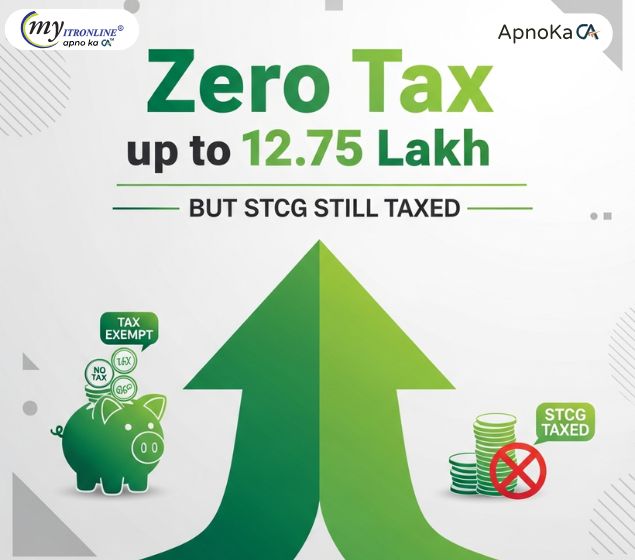
Zero Tax up to 12.75 Lakh But STCG Still Taxed
The Union Budget 2025 has raised the Section 87A rebate, exempting income up to ₹12.75 lakh from tax. However, Short-Term Capital Gains (STCG) on equity shares and mutual funds remain taxable at a flat 15%. While salaried taxpayers enjoy zero tax relief, investors and traders must pay STCG separately without rebate benefits.
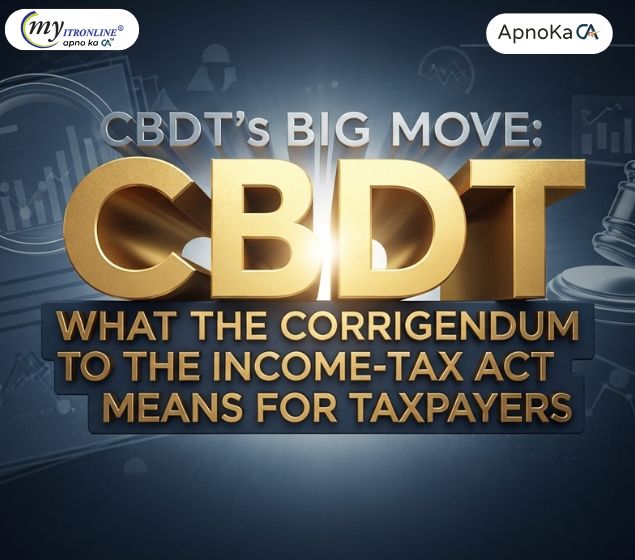
CBDT’s Big Move: Corrective Amendment to the Income-tax Act, 2025
The Central Board of Direct Taxes (CBDT) has issued a significant corrigendum to the recently enacted Income-tax Act, 2025. This blog post delves into the necessity and impact of these corrections, highlighting various typographical, grammatical, and structural fixes. It explains why such legislative "housekeeping" is crucial for legal accuracy and preventing disputes, while also providing context on the broader reforms introduced by the Income-tax Act, 2025, including a simplified structure, unified tax year, and digital-first assessments. The key takeaway emphasizes that while the corrigendum doesn't alter tax policy substance, it ensures the Act is legally sound and ready for smooth implementation, supporting India's goal of a simpler, more transparent tax framework.
.jpg)
TDS Rules for Your Rent and Property: What You Need to Know
This blog post offers a clear comparison of four important TDS sections related to property and rental income in India: 194I, 194-IA, 194-IB, and 194-IC. It explains each section's nature of payment, payer, payee, threshold limits, TDS rates (including recent changes for 194-IB and 194I for FY 2025-26), time of deduction, required forms, and TAN requirements. The post also discusses the connections between these sections, compliance issues, and best practices for individuals, businesses, and developers to manage the TDS landscape effectively and avoid penalties.

Income Tax in India: Are You Prepared for July 2025?
This blog post provides a comprehensive overview of the significant income tax changes coming into effect in India from July 1, 2025. It details the more attractive new tax regime with revised slabs and increased deductions, the extended ITR filing deadline, the mandate for Aadhaar in PAN applications, and the real-time PAN-bank linking system. Furthermore, it touches upon the updated ITR forms and the broader proposals of the Income Tax Bill 2025, offering taxpayers crucial insights for compliance and effective tax planning.
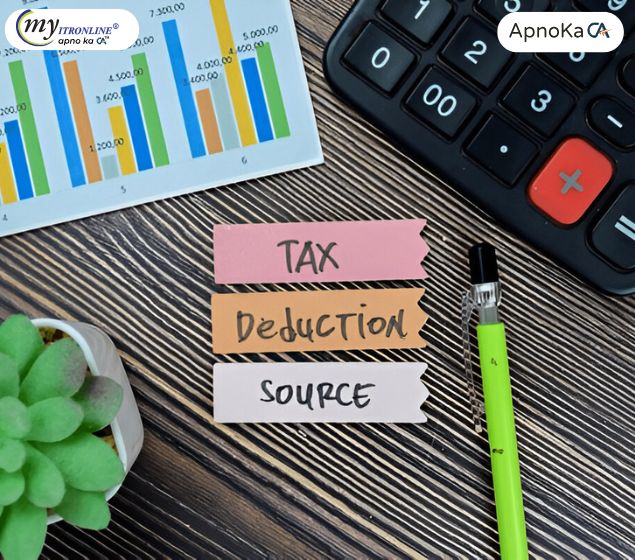
TDS Simplified: Your Essential Rate Chart for FY 2025-26 (AY 2026-27)
This in-depth guide simplifies TDS (Tax Deducted at Source) for Financial Year 2025-26 (Assessment Year 2026-27). Discover how this crucial tax collection mechanism works, explore the latest changes from Union Budget 2025 including increased threshold limits, the introduction of Section 194T for partners' remuneration, and the removal of higher TDS for non-filers. We provide a detailed TDS rate chart and explain the implications of non-compliance, empowering both deductors and deductees for efficient tax planning and compliance
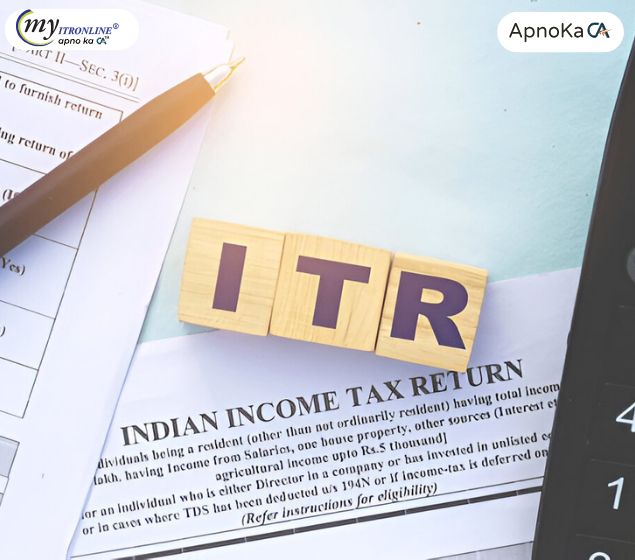
Major Update: You Can Now File ITR-U for the Past Four Years!
The Income Tax Department has announced a monumental extension for ITR-U (Updated Income Tax Return) filing, allowing taxpayers to rectify errors or omissions for up to four previous years instead of the prior two. This blog delves into what ITR-U is, the new extended deadlines, who is eligible to file, situations where it cannot be filed, the associated additional tax liability, and the myriad benefits this flexibility offers for enhanced tax compliance and reduced legal complications.

How to Save Tax on Capital Gains: Key Exemptions and Step-by-Step Claim Guide
This blog explains the key exemptions available under India’s capital gains tax laws for FY 2025-26, including the latest updates from Budget 2025. It covers who can claim each exemption, how to utilize the Capital Gain Account Scheme, and the correct process for claiming exemptions in your income tax return.
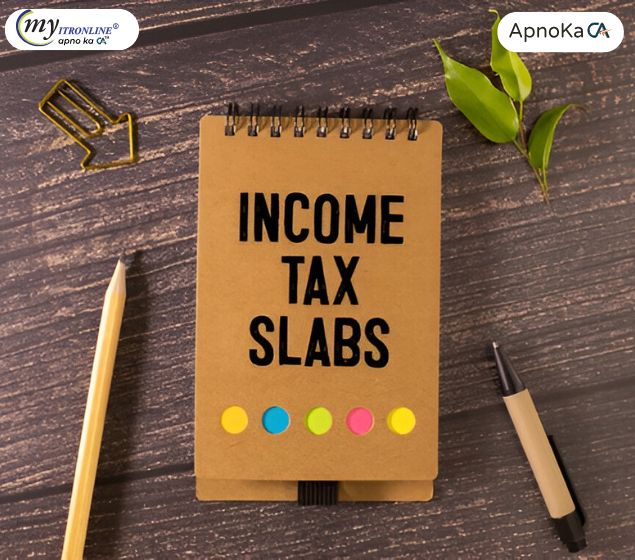
Which Tax Regime Should You Choose in FY 2025-26? Old vs New Explained
This blog decodes the key differences between the Old and New Income Tax Regimes for FY 2025-26, following the updates in Budget 2025. It covers the latest tax slabs, standard deductions, rebates, and provides practical scenarios to help taxpayers decide which regime is more beneficial based on their income and eligible deductions.

High Income Taxpayers: Essential Update on Surcharge & Marginal Relief (AY 25-26 & Budget 25)
This blog explains the concept of income tax surcharge and marginal relief in India for AY 2025-26 (FY 2024-25). It details the current surcharge rates under both old and new tax regimes and illustrates how marginal relief prevents excessive tax liability near surcharge thresholds. Additionally, it covers key Budget 2025 proposals affecting FY 2025-26 (AY 2026-27), including revised tax slabs, increased rebate under Sec 87A, and a new type of marginal relief linked to the rebate threshold.

India TDS Rate Chart FY 2025-26 (AY 2026-27): A Preliminary Overview
An initial guide to Tax Deducted at Source (TDS) rates and thresholds for India's Financial Year 2025-26 (Assessment Year 2026-27), based on current provisions as of April 2025. Details include a comprehensive rate chart covering common sections, key considerations like PAN non-furnishing, recent threshold changes (e.g., for interest, rent, commissions), potential policy updates (like the status of Section 206AB), and essential compliance deadlines. The guide strongly emphasizes that final rates are contingent upon the Full Union Budget 2025.
.jpg)
Updated TDS Rates and Limits Effective from April 1, 2025: Significant Modifications and Effects
The Indian Government has updated TDS rates and thresholds starting from 1st April 2025, providing relief for taxpayers. Major alterations encompass increased exemption limits for interest earnings (Section 194A), rental income (Section 194I), and professional charges (Section 194J), along with revised thresholds for real estate transactions and cryptocurrency dealings.
.jpg)
Taxpayers Are Notified of Capital Gains Income Tax: Section 87A Rebate
This blog explains why taxpayers with capital gains are receiving Section 87A rebate notices. Learn about eligibility, common mistakes, and how to respond to income tax notices effectively.
